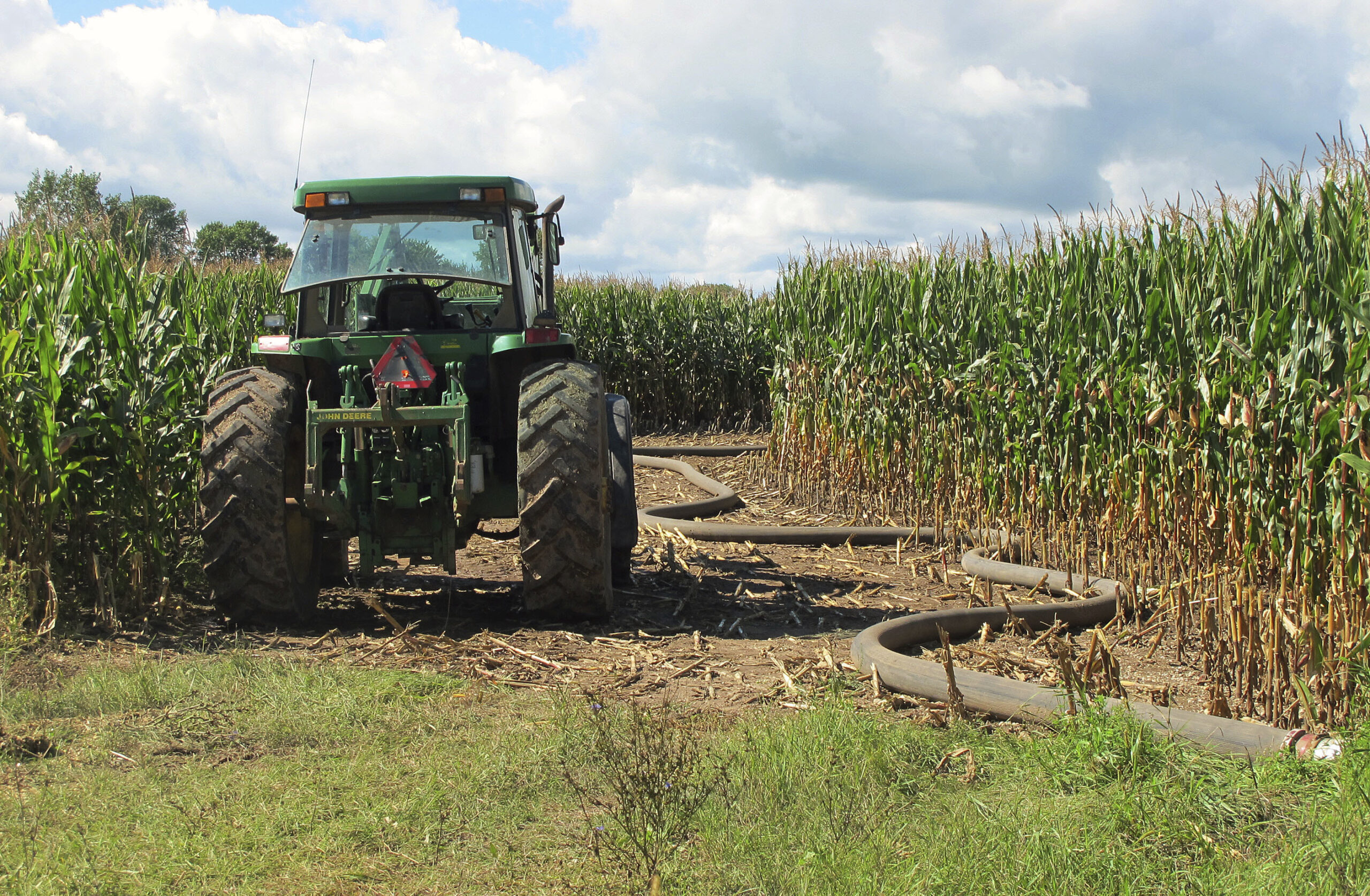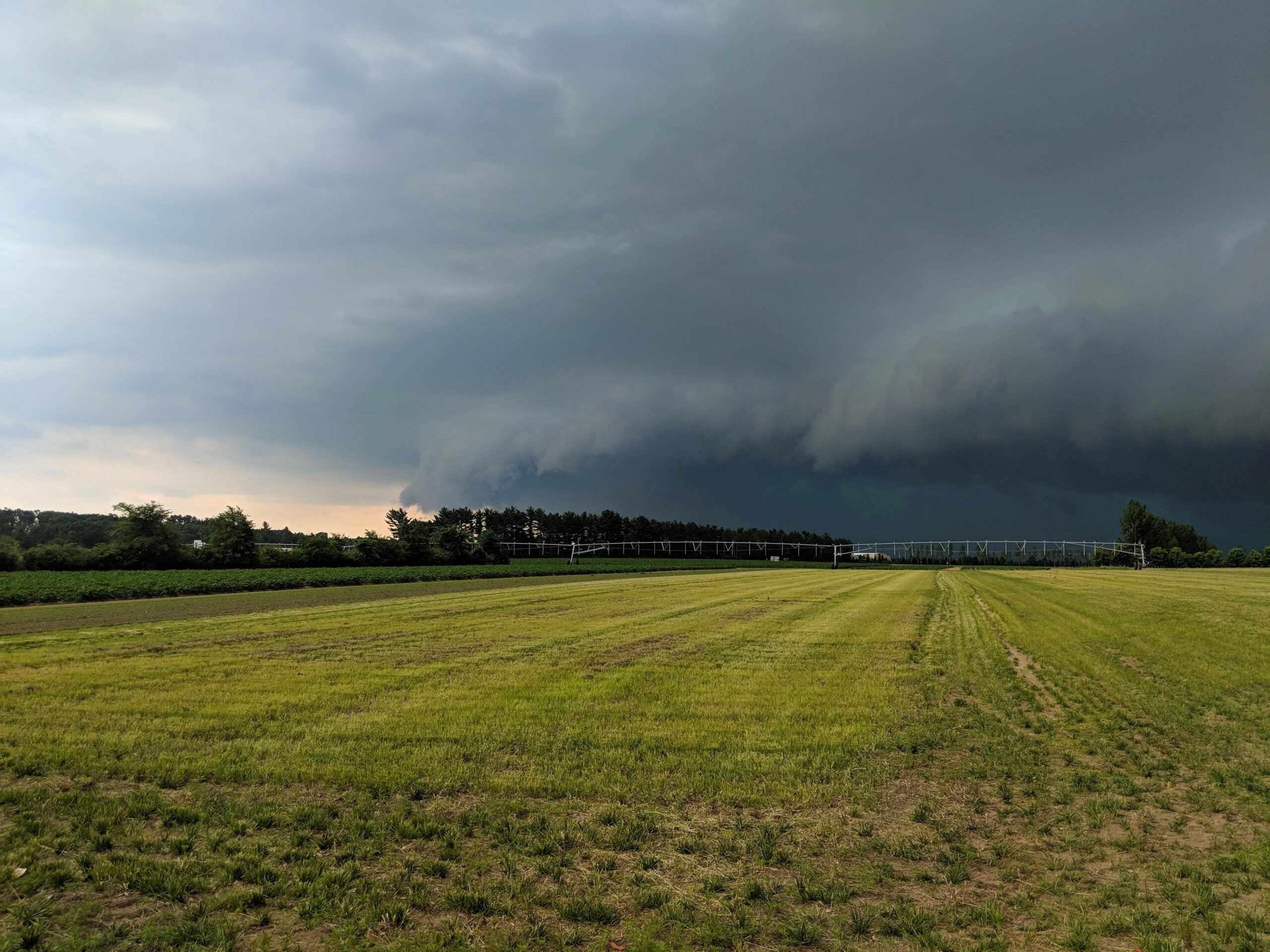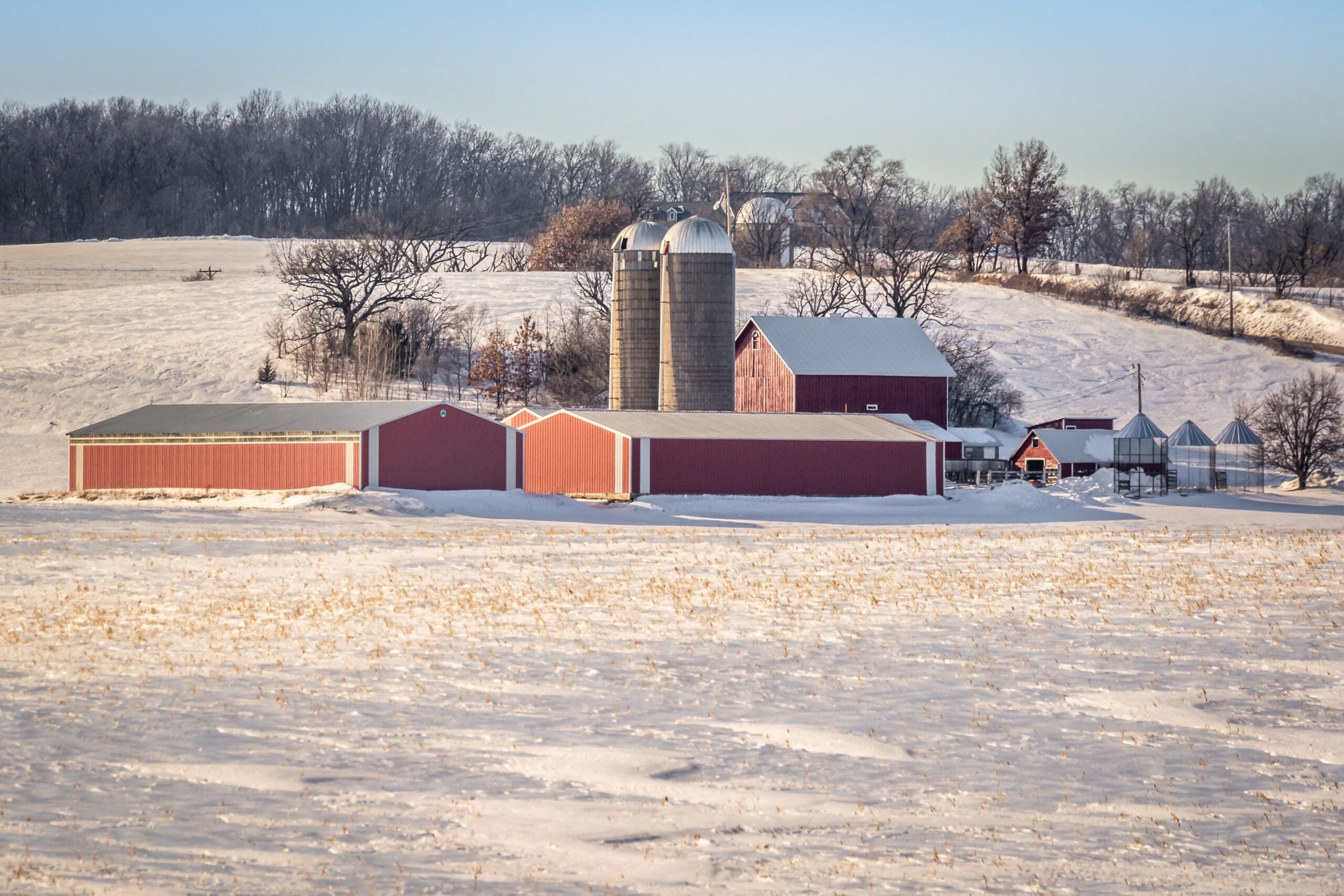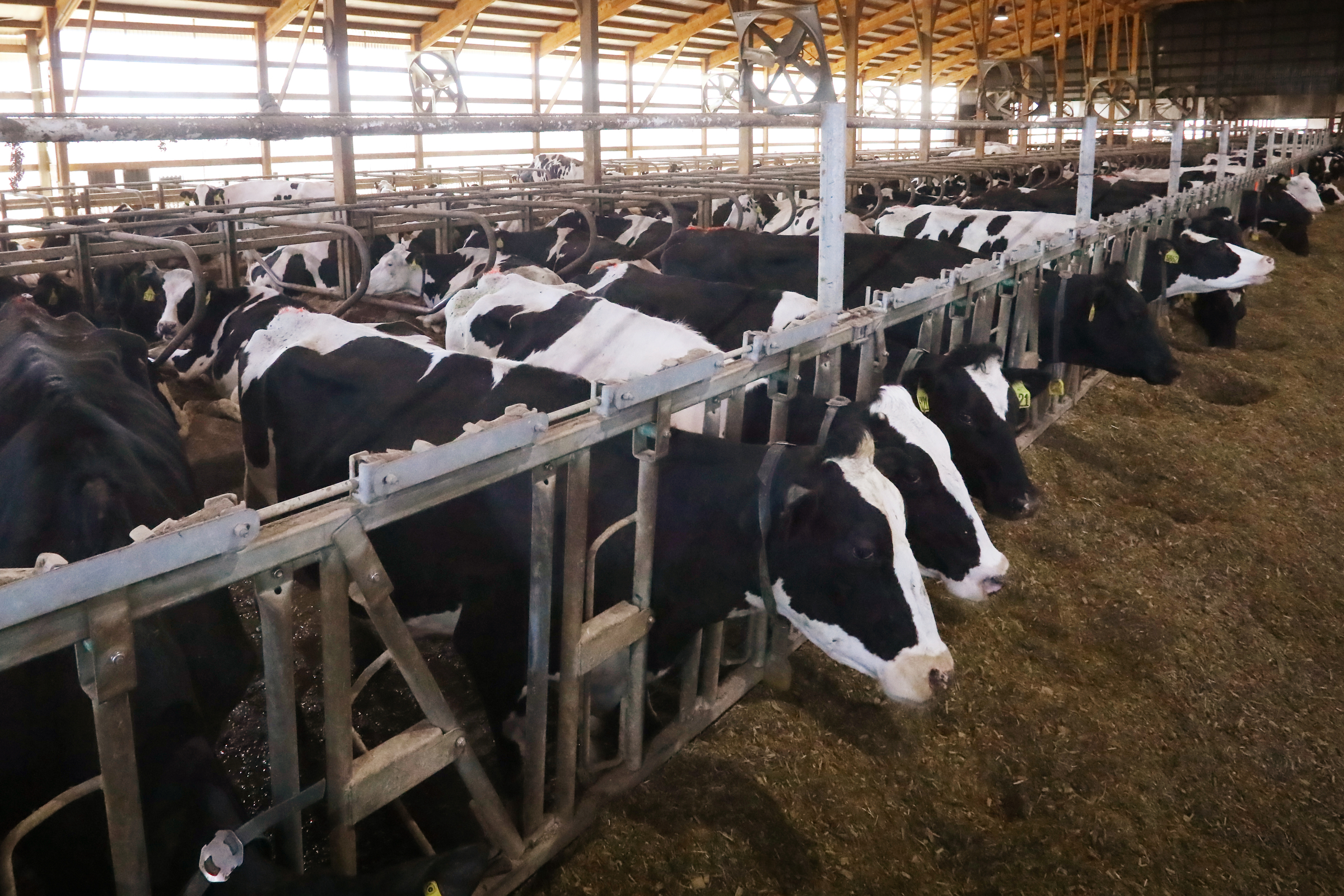Implementing stricter fertilizer restrictions for Wisconsin farms in sensitive environmental areas would create additional costs for producers that could add up to between $22.5 million and $31 million.
That’s the findings of a report prepared by researchers at the University of Wisconsin-Madison.
The white paper was commissioned by the state Department of Natural Resources as part of an update to regulations meant to reduce nitrate pollution in the state’s groundwater caused by farm runoff.
Stay informed on the latest news
Sign up for WPR’s email newsletter.
The DNR has proposed targeted performance standards for farms in areas of the state with highly permeable soils that are susceptible to contamination. The proposed restrictions wouldn’t only affect dairy and livestock operations that spread manure on fields, but crop farmers that use nitrogen fertilizers to grow corn, soybeans and specialty crops like potatoes.
Chris Clayton, agricultural runoff section chief for the DNR, said around 90 percent of nitrates in Wisconsin groundwater come from agriculture.
“What (the proposed rule) is really asking producers to do around the state is to avoid applying manure and nitrogen fertilizer in the fall when they’re not growing a crop,” Clayton said. “Also it’s asking producers to consider increasing the use of cover crops and really asking producers to employ strategic nutrient management planning.”
Paul Mitchell is a professor of agricultural and applied economics at UW-Madison and is lead author of the report. He said estimating the economic impact to farms was not a simple process for researchers because of the lack of current data on how producers are managing manure and using nitrogen on their fields.
He said researchers met with focus groups of farmers to identify six main concerns with the proposed changes and looked at available data for each issue. They include:
- Establishing nutrient management plans for all of the state’s farms, which the study estimates could cost producers roughly $8 million after cost-share assistance from the state.
- Increasing manure transportation costs for dairy and beef producers. While the study found no solid data to calculate the total cost of the change, researchers estimated that if 25 percent of a farm’s manure had to be hauled an extra quarter mile, it would cost between $7 million and $8.5 million — or a 10 percent increase.
- Using less nitrogen could reduce crop yields. Based on prior studies researchers assumed a 10 percent reduction in the nitrogen would translate to a 1 percent loss in yields. (For corn, that could end up costing farmers between $4.1 million and $11.5 million depending on the price of corn. Potato growers could lose around $2.4 million due to lower yields).
- Changing crops to reduce nitrate runoff could affect farmers’ profits, but the study wasn’t sure by how much.
- Farm management costs required to implement the rule change could add up to nearly $1 million annually.
- Economic impacts of lower farm revenue could be far-reaching. Based on the current economic impact of the state’s agriculture industry, researchers estimate that every dollar of net farm income lost would cause an additional loss of $0.70 in the local economy.
Clayton said these estimates, and the report’s analysis of different management practices that could be used to reduce runoff, give both the DNR and farmers useful information on how to move forward.
“We’ve collected quite a bit of information, certainly dug into the science on this, and we do have a lot of science and economic tools needed to improve nitrogen management and to take action like this rule,” Clayton said.
He said the DNR is confident in moving to the next step of getting approval from the Natural Resources Board to issue a draft rule.
Mitchell said that regardless of what happens with the specific proposal, he believes progress has been made on getting all stakeholders to work together on addressing the complicated problem of nitrate pollution. He said many farmers in the study’s focus groups expressed an interest in working to improve water quality despite their concerns about what the regulations could cost them.
“They understand that they’re going to have to make changes to meet these standards or proposed rule changes. They’re on board with it, they just want to make sure that it’s going to work and it’s not going to be unduly burdening them economically,” Mitchell said. “They know there’s water quality problems in some of these areas. They’re part of the people being affected by it.”
Karen Gefvert, executive director of government relations for the Wisconsin Farm Bureau, agrees that many farmers are interested in working on this issue. But she feels the report highlights the lack of data on how the proposed rule change will affect farms.
She said some changes could have “unintended consequences” for farms outside the areas identified as environmentally sensitive. As an example, she points to limiting the window for manure application.
“If you were a farmer who wasn’t in the targeted area who wanted to spread manure, you may get pushed back to later on in the season for that service. And we all know how weather can be in both the spring and the fall, so that could have implications for farms,” Gefvert said.
She said more on-farm research is needed. But Clayton said there’s also a cost to not moving forward with stricter regulations for farms.
A report published last October found that nitrate pollution in drinking water is linked to negative health outcomes that are costing people in Wisconsin between $23 million and $80 million in annual medical expenses.
Wisconsin Public Radio, © Copyright 2025, Board of Regents of the University of Wisconsin System and Wisconsin Educational Communications Board.





